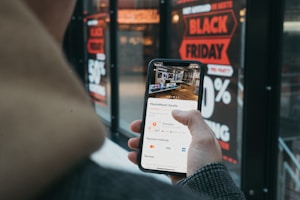Location information is sensitive information that keeps changing whenever we move from one point to another. It is determined and sensed by the embedded GPS inside our devices, and for mobile devices such as smartphones, the location sensor also has software controls that enable us to turn it on or off. For instance, whenever we are using Wi-Fi, the location sensor is often turned on to improve the network’s reception and make it full of the internet around us. Websites that we visit might ask us to share our location information with them. However, we are not obligated to share this information with them as the permissions are always within our hands.
In any case, this information makes for better targeting and refinement of the services rendered to us through these websites. When we have the location information turned on, we get what is relevant to us. Anything that is outside our radius of influence gets removed from the information we receive. In short, location information provides better targeting of the services that we receive from online service providers. When it comes to maintaining a history of where we have been browsing from, the location information enables the web applications to know where we were—the information they gave to us in those locations.
Driving around in unknown locations requires location information, that ensures that the guiding program is more accurate in helping us move around and find our way more easily. A healthy usage of the internet does not obligate us to share any location information with the websites we visit. This is why there will always be a dialog box asking whether we want to share this information with the website. IN short, it is entirely up to us to decide whether or not we would be willing to share this information and when we, even in the least bit, feel uncomfortable about giving out the information, we do not have to.
Privacy is more important than the services that require location information, which means that we do not have to share location information if we feel that the website we are going to share this information with does not safeguard the information given to them properly. Whenever we are on a website that needs to use our location information, we must first check to find out if the connection to the website is encrypted in the first place, absence of which we will refuse to share the information completely. Our privacy is also safeguarded when the information we decide to give to websites that need to use location information in rendering services does not share that data with any other third parties. It makes sense to trust only the websites that provide value to you as an internet user and give them location information for better services.








